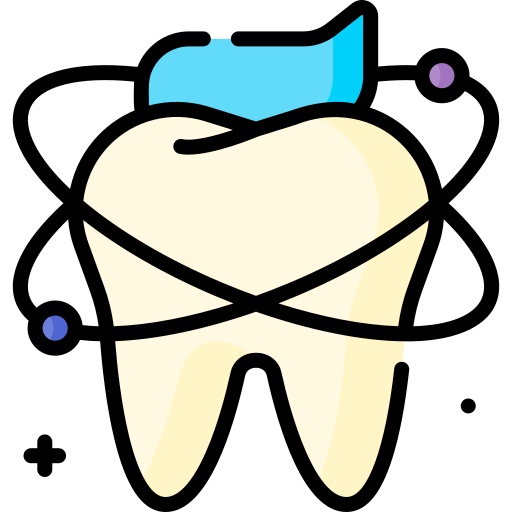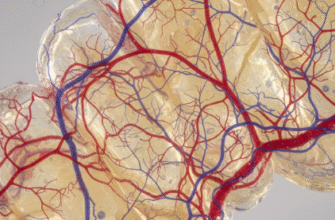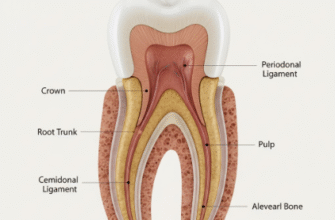Many folks have a pretty straightforward image of a dental visit: you go in, get your teeth scraped and polished, maybe a lecture about flossing, and if you’re unlucky, you hear the dreaded word “cavity” followed by the whir of a drill. While cleanings and fillings are certainly vital parts of what dentists do, thinking that’s the entire scope of their work is like believing a chef only knows how to boil water. Your dental team offers a far broader range of services, all aimed at maintaining not just your smile, but your overall oral health and well-being.
Beyond the Surface: The Comprehensive Check-Up
That appointment you scheduled, perhaps thinking it’s just for a polish, actually kicks off with a thorough investigation. Your dentist is like a detective for your mouth, looking for clues that might indicate current or future problems. This isn’t just a quick glance; it’s a detailed examination.
One of the most critical, yet often overlooked, parts of this exam is an oral cancer screening. Your dentist or hygienist will visually inspect your gums, tongue, cheeks, palate, and throat, and may also gently feel your neck and jaw for any abnormalities. Early detection is absolutely key in successfully addressing oral cancer, making this screening a potentially life-saving procedure that happens quietly in the background of your “routine” visit.
Then there’s the assessment of your gum health. They’ll gently probe the spaces between your teeth and gums, measuring pocket depths. This helps detect early signs of gingivitis or more advanced periodontal (gum) disease. Catching gum disease in its infancy means treatment is simpler and more effective, preventing issues like tooth loss down the line. They’re not just looking for bleeding; they’re assessing the very foundation that supports your teeth.
Your existing dental work – fillings, crowns, bridges – also gets a once-over. Are they still intact? Are there signs of wear or leakage around them? A failing restoration can lead to new decay underneath or even a cracked tooth if not addressed. It’s preventative maintenance for work already done.
Regular dental examinations are crucial because many oral health issues, such as early-stage gum disease or small cavities, often develop without any pain or obvious symptoms. Your dental team is trained to spot these subtle signs. Catching problems early usually means less invasive and less costly treatments.
Your dentist will also look at your bite (occlusion) and the function of your jaw joints (TMJs). Issues here can lead to tooth wear, headaches, or jaw pain. Sometimes, simple adjustments or advice can prevent more significant problems from developing.
Prevention: The Unsung Hero of Dental Care
While cleanings remove plaque and tartar buildup that you can’t tackle at home, prevention at the dental office goes much further. Think of your hygienist and dentist as your personal oral health coaches.
Fluoride treatments, for example, aren’t just for kids. Adults can benefit too, especially if they’re prone to cavities or have sensitive teeth. Fluoride helps remineralize enamel, making teeth more resistant to acid attacks from bacteria and sugary foods. Another preventive measure, particularly for children and teenagers, is the application of dental sealants. These are thin protective coatings painted onto the chewing surfaces of molars, sealing out food particles and bacteria from the deep grooves where cavities often start.
A significant part of preventive care is education. Your dental team can provide personalized advice on your brushing and flossing techniques. You might think you’ve got it down, but a few small tweaks suggested by a professional can make a world of difference. They can also discuss the impact of your diet and lifestyle choices on your oral health – for instance, how frequent snacking on sugary or acidic foods can increase your risk of cavities and erosion.
Guarding Your Gums: More Than Just a Cleaning
When we talk about “cleaning,” it’s often a professional prophylaxis, which is a preventive measure to keep healthy gums healthy. However, if signs of gum disease are present, the type of cleaning required might be different and more therapeutic. This could involve scaling and root planing, often called a “deep cleaning,” which goes below the gumline to remove tartar and bacteria from the roots of the teeth. This isn’t just “extra cleaning”; it’s a treatment to halt the progression of gum disease and save your teeth. Your regular visit is where the need for such interventions is first identified.
The Bigger Picture: Your Mouth is a Window
It’s becoming increasingly understood that your oral health is interconnected with your overall health. While we must be careful not to overstate direct causal links for every condition, maintaining a healthy mouth is certainly a positive contribution to your general well-being. For instance, inflammation in the gums, if left unchecked, doesn’t necessarily stay confined to the mouth.
Think about it: your mouth is a primary gateway to the rest of your body. Keeping it free from chronic infections and inflammation is simply good sense. Beyond the physiological aspects, a healthy, comfortable mouth significantly impacts your quality of life. It allows you to eat properly, speak clearly, and smile with confidence. Dental visits are an investment in this overall comfort and assurance.
Skipping dental appointments can allow minor issues to escalate into more complex and potentially painful problems. What might have been a small, easily treatable cavity can grow, requiring a root canal or even extraction. Similarly, unchecked gum disease can lead to tooth loss and affect overall health. Regular visits are your best defense.
Beyond Fillings: Restoring and Enhancing Your Smile
Sometimes, despite our best efforts, teeth can get damaged, worn, or even lost. Dentists are also skilled in restoring teeth to their proper form and function, and this goes far beyond simple fillings for small cavities.
If a tooth is significantly decayed, cracked, or weakened, a dental crown (or cap) might be recommended. This covers the entire tooth, protecting it and restoring its shape and strength. For missing teeth, options like dental bridges or dental implants can be discussed. These solutions don’t just fill a gap for cosmetic reasons; they prevent remaining teeth from shifting, help maintain your bite, and restore chewing ability.
And yes, dentists do offer services that are more aesthetic in nature. Procedures like teeth whitening or the application of veneers can dramatically improve the appearance of your smile. While sometimes seen as purely cosmetic, the boost in confidence from a smile you’re happy with can be quite significant. These discussions often happen during routine visits, where you can explore options if you have concerns about the appearance of your teeth.
Specialized Support and Guidance
Your general dentist is equipped to handle a wide array of dental issues, but they also know when to bring in a specialist. If you have complex orthodontic needs, severe gum disease requiring surgical intervention, or complicated root canal issues, your dentist will refer you to an orthodontist, periodontist, or endodontist, respectively. This collaborative approach ensures you get the most appropriate care.
They can also help with issues like bruxism (teeth grinding) by recommending night guards, or discuss options if you’re experiencing symptoms of temporomandibular joint disorders (TMD). Sometimes, they might even be the first to suggest you get screened for issues like sleep apnea if they notice certain oral signs, guiding you to the right medical professionals.
Your Dental Visit: An Investment, Not Just an Appointment
So, the next time you’re heading to the dentist, remember it’s about so much more than just getting your teeth cleaned or checking for cavities. It’s a comprehensive check-up for a vital part of your body. It’s about prevention, early detection, and access to a wide range of solutions for maintaining and improving your oral health.
Think of your dental team as partners in your long-term health. Building a consistent relationship with them allows for continuity of care, a better understanding of your specific needs, and ultimately, a healthier mouth and a brighter smile. That “routine” visit is an investment in yourself, preventing bigger problems and ensuring your teeth serve you well for a lifetime.








